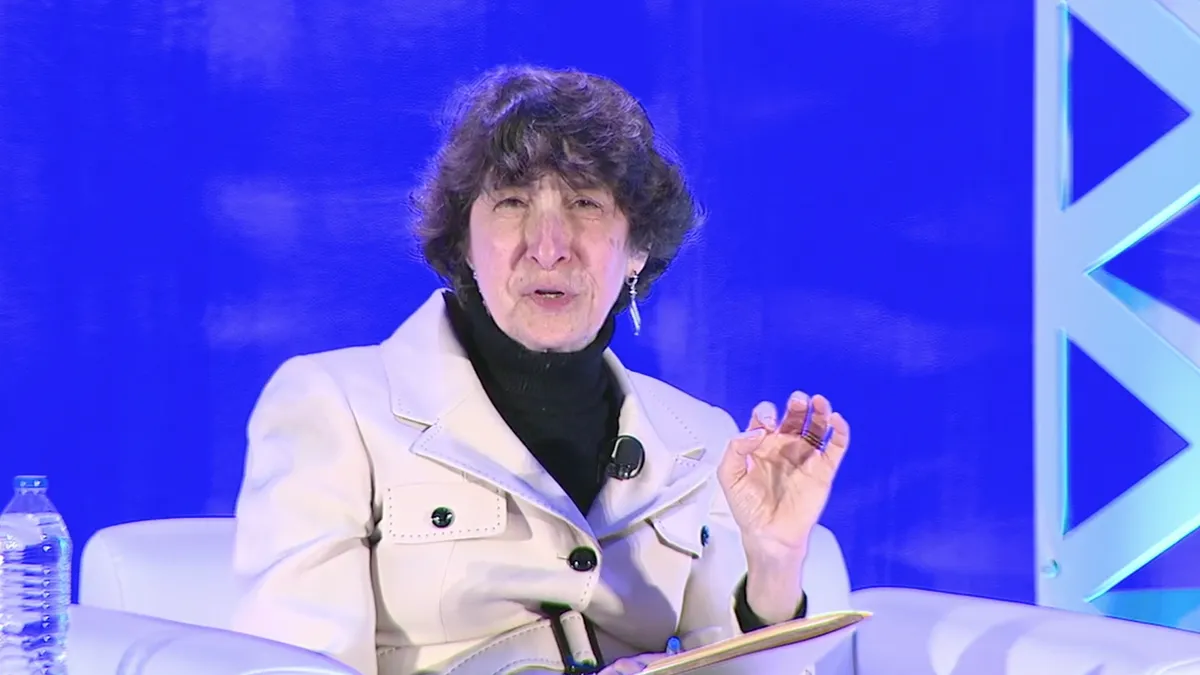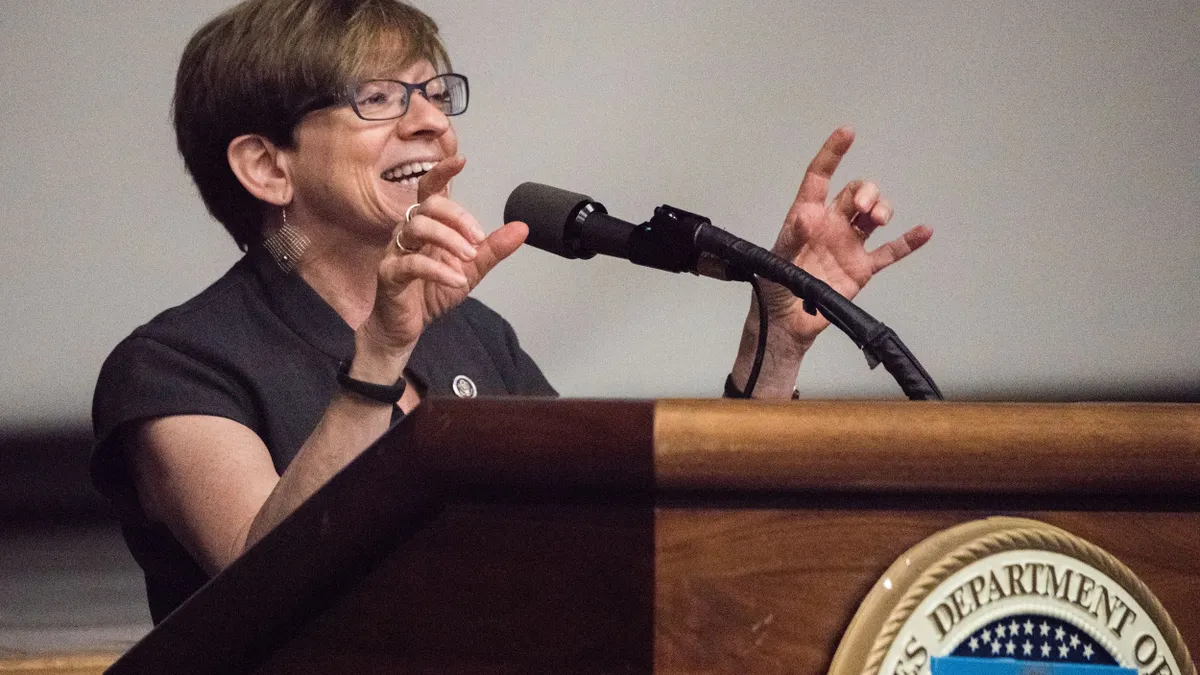Angela F. Williams is the president and CEO of Easterseals, Inc. Views are author's own.
In the U.S. today, 1 in 4 people have a disability, yet individuals with disabilities are a segment of the workforce that remains largely untapped by organizations across the country, according to a Centers for Disease Control and Prevention study from August 2018. Professional services firm Accenture also reported in a 2018 study that only 29% of working age Americans with a disability are employed, in contrast to the 75% of Americans without a disability who are employed.
Organizations that get ahead of the curve in dedicating resources toward the recruitment and retention of workers with disabilities will be positioned to experience a wide range of benefits by securing this untapped pool of talent. Accenture's study noted that businesses maintaining inclusive workforces are twice as likely to outperform competitors in delivering high shareholder returns. This is unsurprising given that these same businesses achieve 28% higher revenue and 30% higher profit margins compared to companies that do not include people with disabilities in their diversity and inclusion strategies.
Enhancing these bottom-line benefits are the qualitative benefits realized by employers of people with disabilities which include loyalty, higher retention rates, increased productivity and enhanced employee morale, emphasizing a culture of inclusion and diversity. Employers can access this talent and enjoy these benefits by making a few intentional efforts.
Audit hiring practices and workplace culture
To build a recruitment program that is more inclusive of individuals with disabilities, we suggest that companies first review and understand their hiring practices and culture. Executive leadership can establish a baseline by conducting interviews and surveys with employees to assess their workplace culture of inclusion while also assuring that the organization meets accessibility standards for employees with disabilities.
Many companies partner with a trusted third-party expert to advise on measures to enhance culture and accessibility in the workplace.
Identify needs and implement changes
Once a workplace audit has been completed, organizations can use these findings to identify areas of their operations that may need to be modified to assure accessibility. For example, hiring directors and employee managers may need to attend training sessions to better understand best practices in disability etiquette and policies that can facilitate an inclusive workplace.
Many companies also establish employee resource groups to advance inclusion and provide employees of all abilities with the opportunity to network and address opportunities to heighten inclusion and accessibility within the company.
Recruiting talent
Companies often share that they don't always know how to recruit the talent of individuals with disabilities. This can be accomplished in a number of ways, including setting up a booth at a disability-focused job fair, connecting with career centers at local colleges and universities, and accessing organizations that provide job training and other support for people with disabilities.
There also are national online job boards specifically targeted to reach job seekers with disabilities. Easterseals' Veterans Staffing Network works with companies nationwide to identify veterans as well as people with disabilities to fill their recruitment needs. Project SEARCH is our partner in a number of markets to train, coach and mentor job candidates for placement within a variety of companies with which they work, including Fifth Third Bank.
Internships offer an additional opportunity for organizations to proactively engage potential employees. Indianapolis-based healthcare system Community Hospital East has maintained an internship program for people with disabilities for more than 10 years. Over the course of that decade, more than 100 participants have completed the program, and 64 individuals with a disability went on to secure full-time employment at the hospital.
Regularly re-assess workplace inclusion
One of the most important things that organizations successfully leveraging the talents of people with disabilities do is regularly review and evaluate their cultures to ensure that inclusion is a key element of the company's corporate values.
People with disabilities have the potential to significantly impact the workplace, and these organizations have shown that hiring programs can achieve both success and inclusion. As National Disability Employment Awareness Month concludes, we hope that employers will continue to enhance their recruiting and hiring practices to include people with disabilities, veterans and older adults by finding a reliable partner that specializes in employment and training services for these populations.
After all, these candidates are ready, willing and able to work, and they continue to demonstrate their value with contributions that positively impact all of us through heightened diversity, inclusion and representation of people with disabilities in the workforce.






















